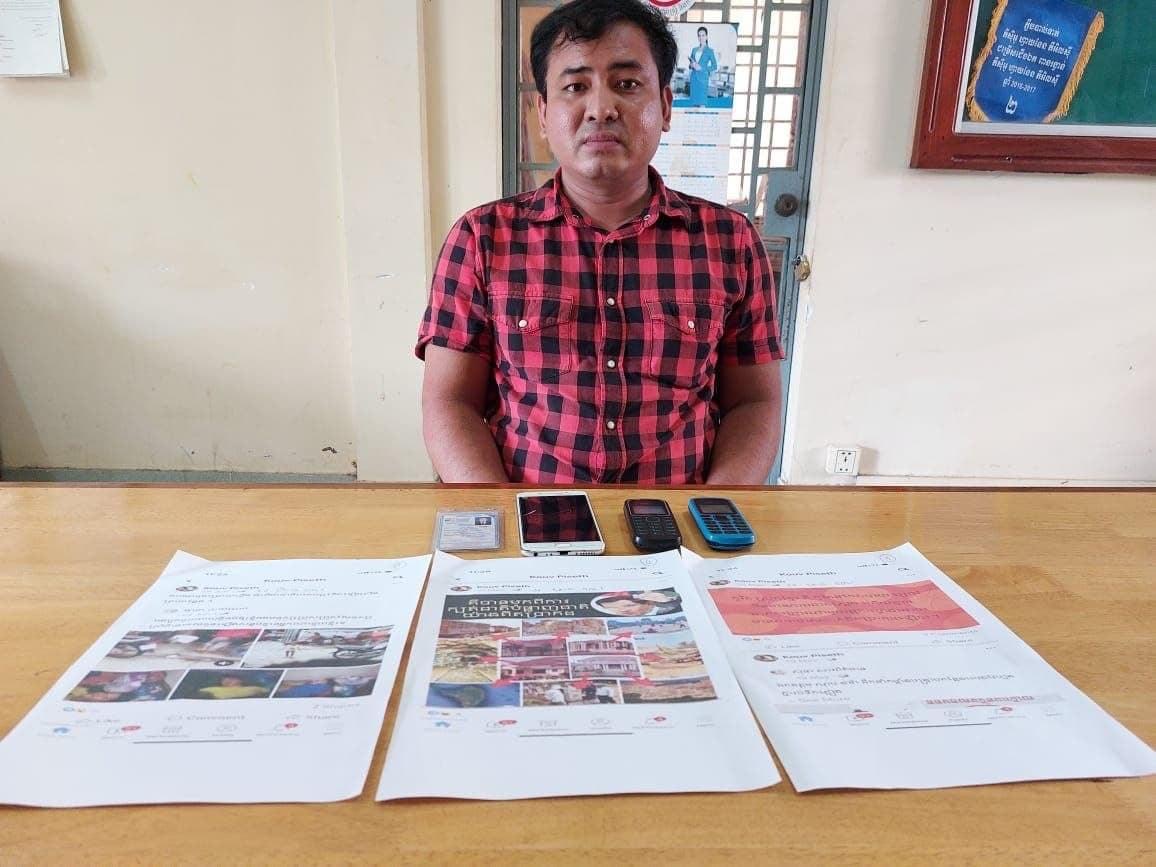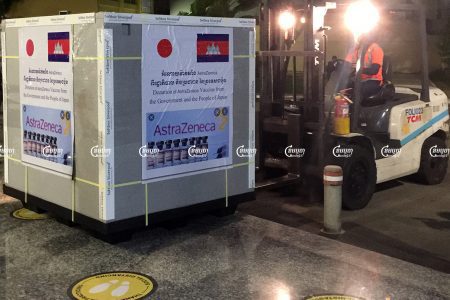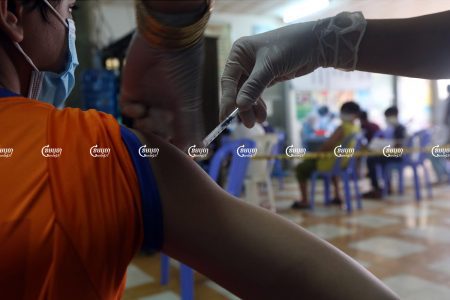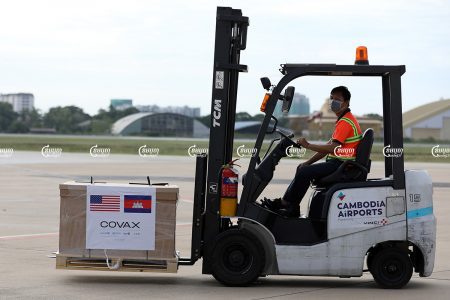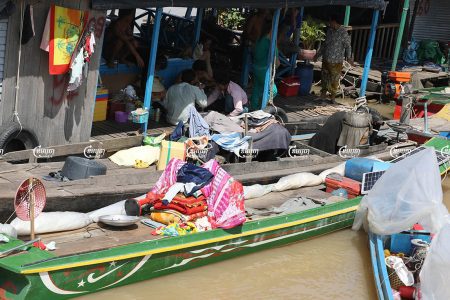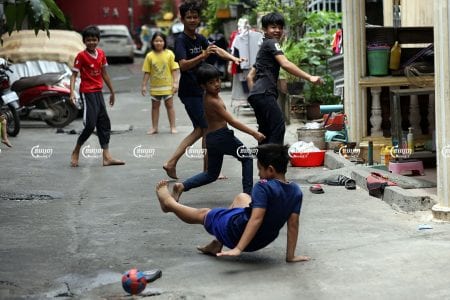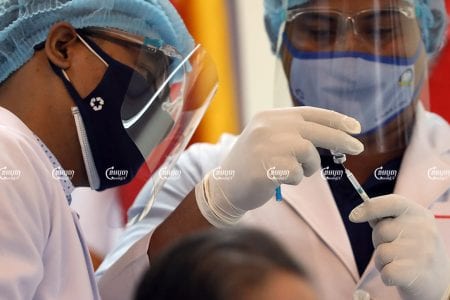An online news journalist in Battambang province was arrested and charged with incitement to commit a felony this week after publicly criticizing the government’s use of Chinese-made vaccines to inoculate the population against COVID-19. The arrest brings the number of journalists arrested in 2021 for their reporting about the government’s response to the pandemic to four.
Provincial court spokeswoman Chea Chanreaksmey confirmed that Kao Piseth, 32, was charged and sent to pre-trial detention on Thursday. Piseth, the Battambang correspondent for Siem Reap-based publication Siem Reap Tannhektar (Breaking News), was arrested on Wednesday on allegations of incitement and obstructing the implementation of Ministry of Health measures.
Provincial military police officer Tou Dy told CamboJA that Piseth had posted many messages criticizing the government leadership, allegedly calling into question the efficacy of the Chinese-made vaccines and accusing the government of using them as a political trick. Both the Sinovac and Sinopharm vaccines have received WHO approval for emergency use.
“He posted a lot of messages related to inciting people not to go to the injection of Chinese vaccines,” he said. Dy declined to comment further.
Piseth’s Facebook’s account has since been deleted from social media, but screenshots of his social media posts have been published by local online outlet Koh Santepheap Daily. “We do not support Cambodian People’s Party rule, step down, we, the next generation do not support you,” read one, as well as “We ask the international community to take action on Prime Minister Hun Sen and cut all aid,”.
Ith Sothoeuth, media director at the Cambodian Center for Independent Media, expressed concern that the government was continuing to silence critical voices. He urged authorities to thoroughly investigate alleged wrongdoing before arresting reporters.
“I am also worried that the arrest does not just involve incitement [against the] vaccine, but might have been used against [other critical reporting such as] reports showing inactive officials, and they took this chance to crack down on journalists,” he said. Sothoeuth added that it is normal in a democratic country to uphold freedom of expression and allow criticism of the government and leadership.
“I think that arresting a journalist does not just threaten press freedom but also intimidates the public in their involvement in freedom of expression, especially through social media,” he said.
Information Ministry spokesman Meas Sophorn said that the ministry will further investigate whether Piseth had committed his alleged wrongdoing as an individual or with the involvement of his media organisation, noting that the news site was legitimately registered with the ministry.
“The legal action against an individual person who has committed wrongdoing is not considered as a restriction of freedom of expression or persecution or threatening journalists,” he said.
Him Khortieth, research and advocacy manager at the Cambodian Journalists Alliance Association, echoed Sothoeuth’s concerns over the journalist’s arrest.
“We think that for making a mistake or exercising an opinion or writing any texts, as he was a journalist, authorities should educate him and make a correction rather than arresting and imprisoning him,” Khortiet said.
He noted that Piseth’s case has brought the number of journalists arrested in 2021 for writing about the spread of COVID-19 to four.
“I think that he seems to be the victim of a crackdown by the government related to freedom of expression around the COVID-19 issue,” he said.
From January to March, the Information Ministry revoked at least three media licenses including Angkor Today, owned by Ung Kongkea and run by a Chinese editor named Shen Kaidong, San Prum news site, and Live Daily news site. All three publications were accused of spreading false information, maliciously endangering public health, and causing chaos in society, which could jeopardize national security and tarnish the royal prestige of the government.
Information Ministry spokesman Sophorn stressed that every person has the right to exercise freedom of expression, but they must respect other rights which were stipulated in the law.
When the public and journalists have violated the law, they have to face the law accordingly,” he said.


